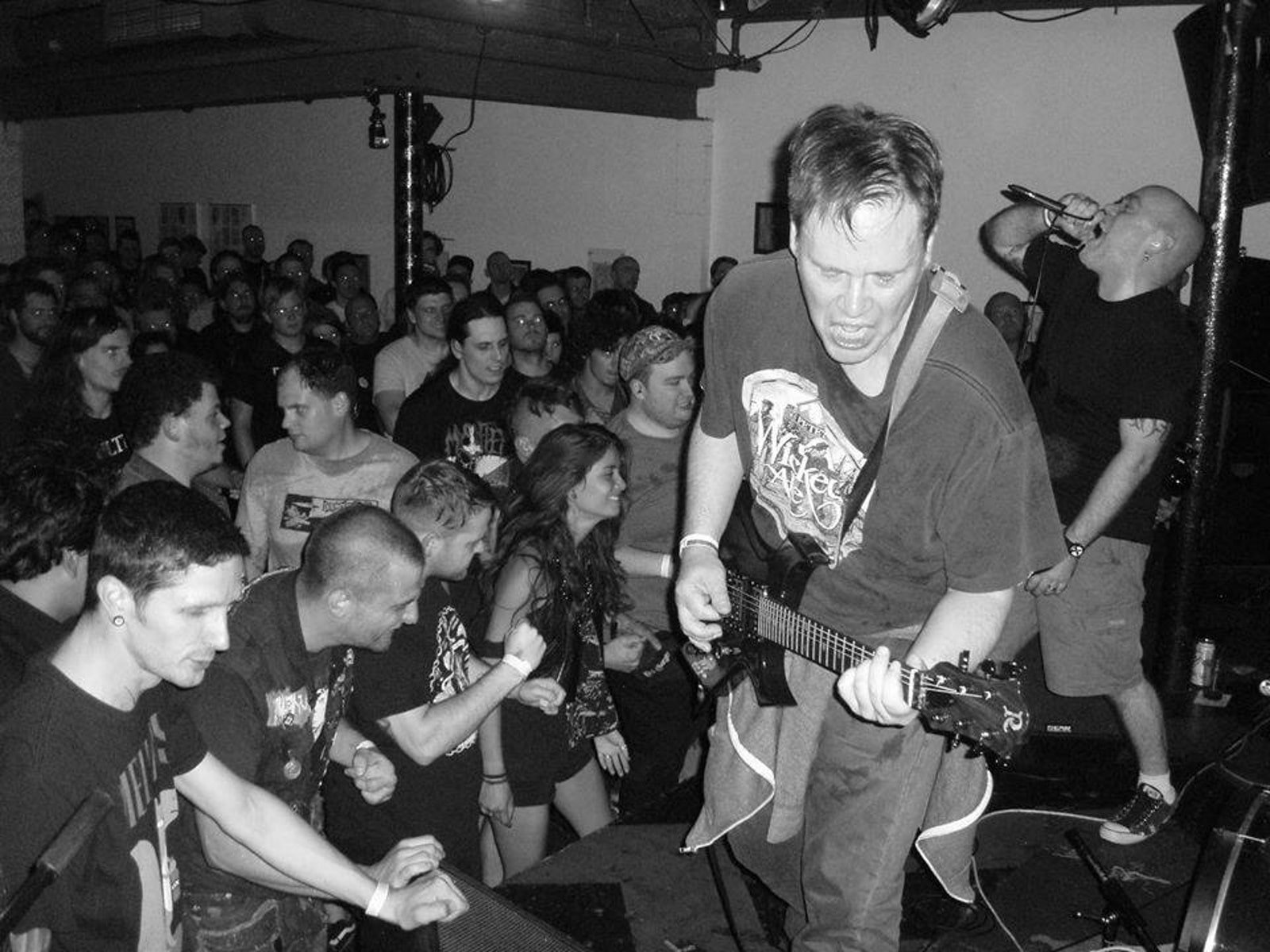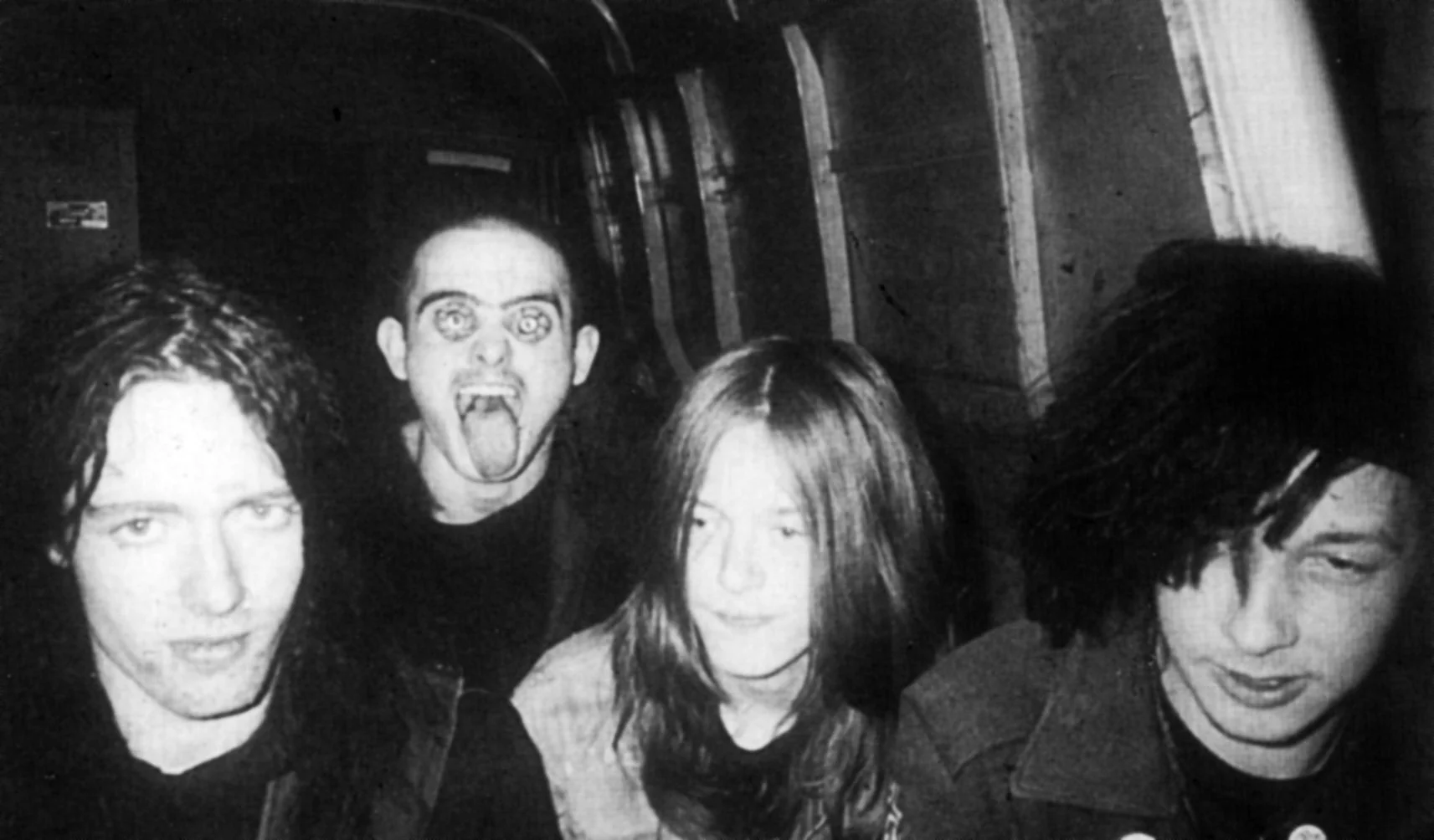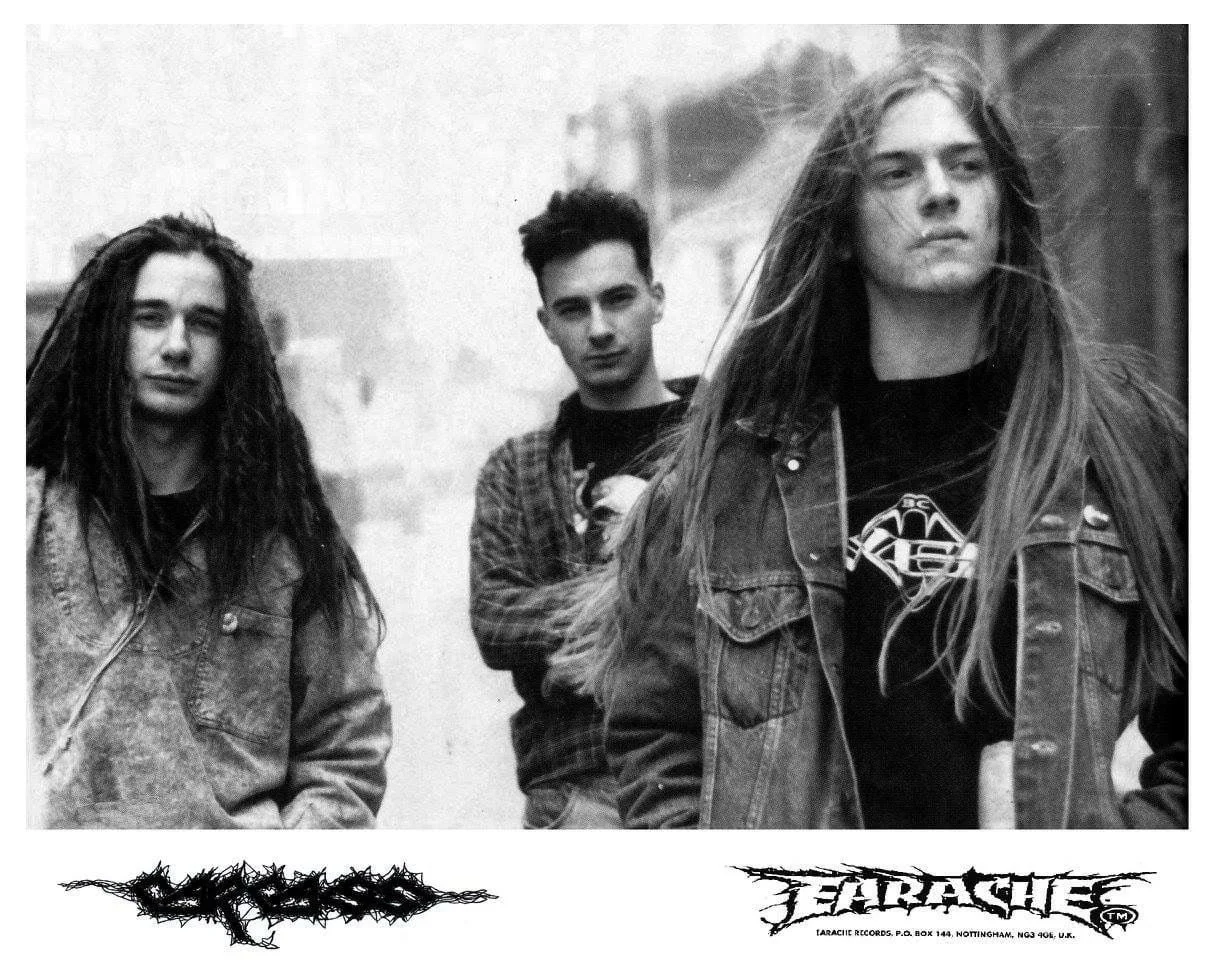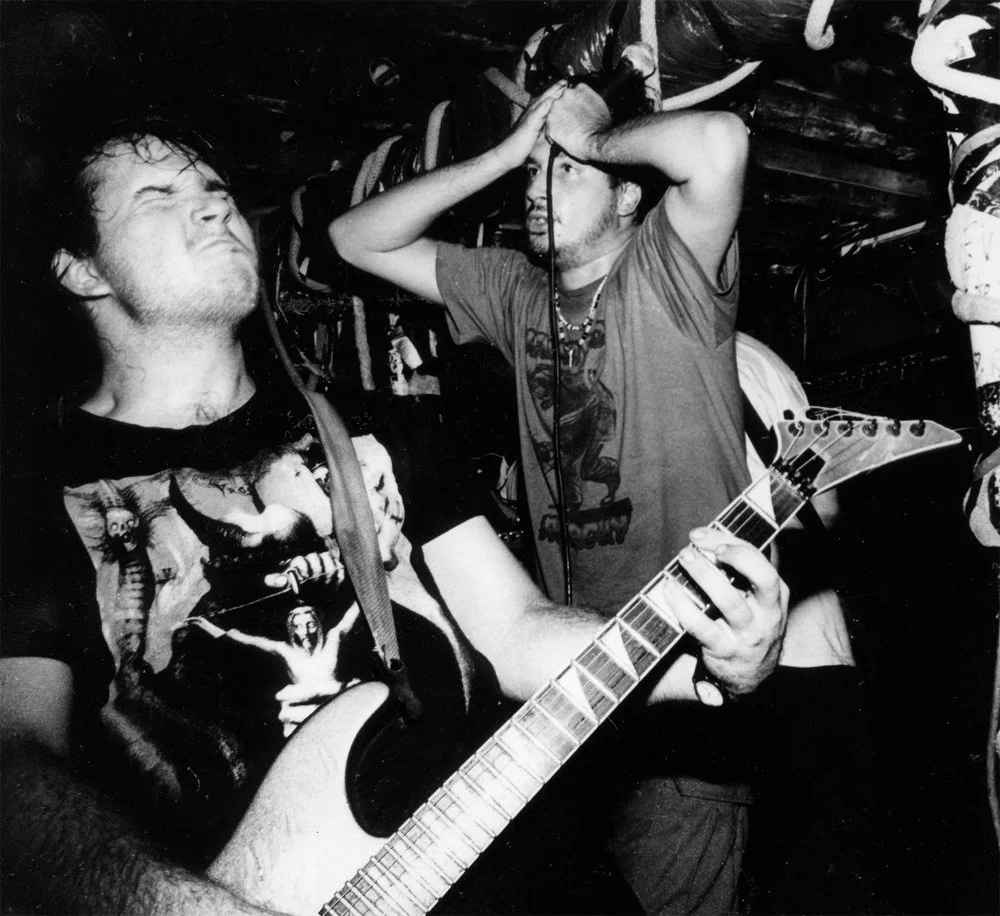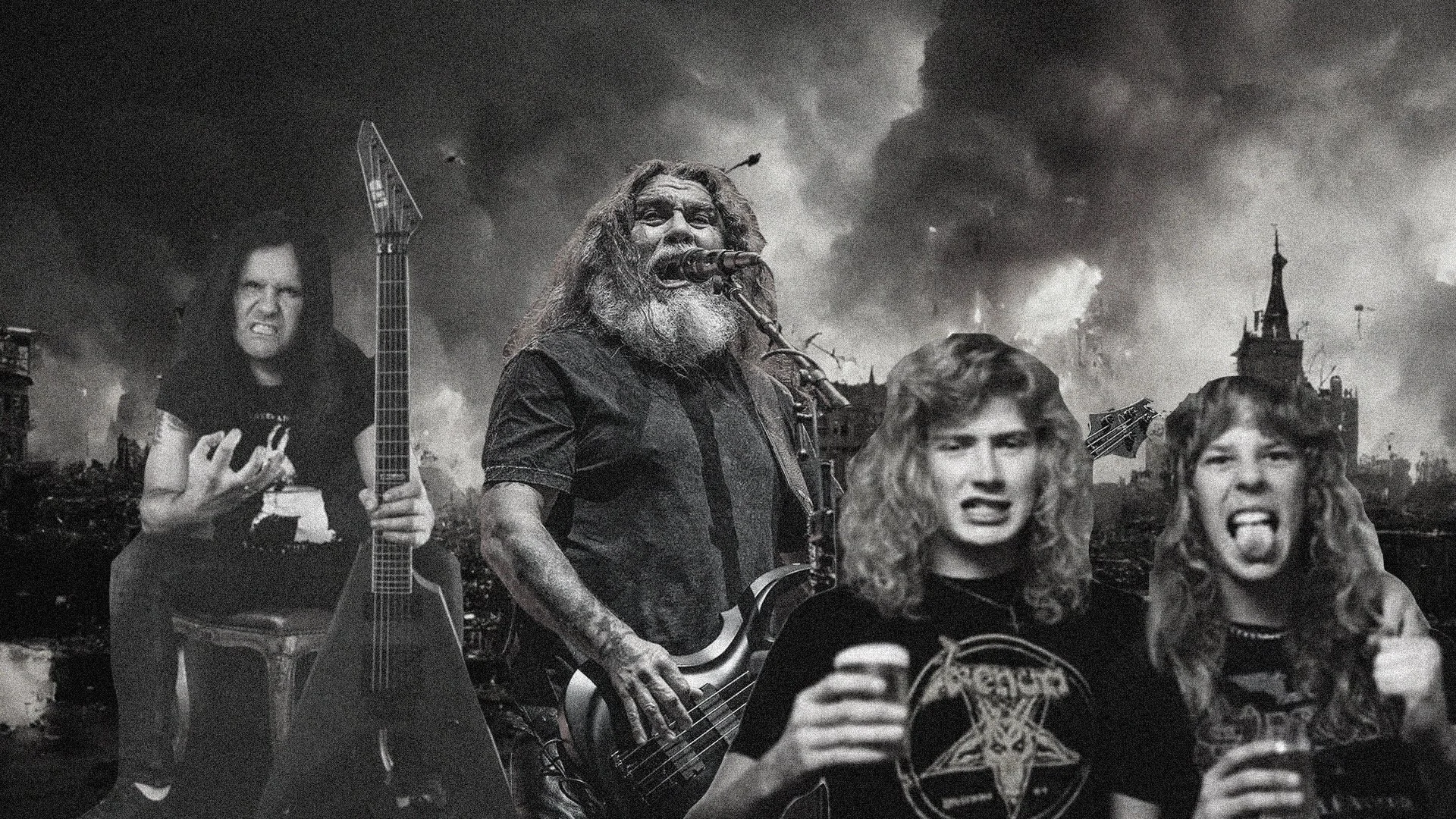A Subjective History of Grindcore
Grindcore happened because of two things that were quite specific to the musical landscape of the eighties: the arm's race to audio brutality and the weird inferiority syndrome hardcore punk had towards early death metal. It was created the way nerve gas was: with great creativity and somewhat by accident.
I should've technically have written about hardcore punk first even if it isn't metal at all because it is foundational to an entire branch of the genre, but grindcore represents the point where punk became metal. I will write about hardcore punk eventually though. Perhaps even next month. From a comprehensiveness standpoint, I don't have a choice. But hardcore punk is a grandfather genre. Grindcore is historically important (and still super pertinent today) because it represents the birth of hybrid genres.
But what is grindcore exactly? It's a more complicated question than it seems. The punk rockers will tell you it is downtuned hardcore punk played with more blast beats and harsh vocals and metalheads will tell you that it's death metal players without any skill and technically, both of these answers are somewhat valid. But I hate both of them. I'd claim that grindcore is a form of extreme metal that emphasize aggression and emotional release over technicality. It has become quite complex over the years, though.
Even more important, grindcore began as a super niche scene and, over the years, slowly weaved its way into the fabric of everything. Modern iterations of the genre are among my favorite things in the entire world.
Protocore: it’s Lemmy's fault again. Somewhat.
It's customary to hail Tony Iommi as the creator of everything metal, but once again we need to turn to the almighty Lemmy Kilmister to better understand the origins of another genre of extreme music.
Before there even was Napalm Death, there was Siege. A hardcore punk band from Massachusetts that formed in 1981 and that truly, TRULY did not give a fuck. These guys loved speed metal and New Wave of British Heavy Metal and wanted to play faster, angrier and more balls out music than anyone that ever lived. Their frontman also sometimes played saxophone because why the fuck not? When I say that these guys T R U L Y didn’t give a fuck, this is what I meant. They embraced being different.
Who the fuck do you think inspired these cats to walk their own path of destruction huh? Siege loved British bands like Motörhead, Venom and Discharge and you could somewhat hear it in their music. What made them different was the ghoulish shrieks of their frontman Kevin Mahoney and their strange, super aggressive, ADHD, unpredictable style that put other hardcore punks on notice. They have only one record called Drop Dead, but listen to what kind off-putting, inconoclast shenenigans they were up to:
A song like Grim Reaper could've come out in 2021 and it wouldn’t sound anachronistic at all.
The other great percursor of grindcore is the American death thrash band Repulson. Another band enamored with the idea of going as scorchingly fast as humanly possible. If Siege were important in terms of formal innovation (which is at the heart of grindcore), Repulsion brought the unmatched levels of speed and aggression. If Motörhead were the first band who tried to challenge the laws of how fast you’re allowed to play music, Repulsion definitely one upped them on it.
Insane, petty competition is often at the heart of extreme art, but also inspiration. Repulsion is much more straightforward than Siege is, but it's easy to understand how a rebellious punk rock kid heard that in the eighties and told himself : "Fuck yeah, I feel even angrier than this. Fuck everything" and they did. These kids would soon surface in West Midlands and kick all of our fucking asses.
Napalm Death and the British Invasion
Napalm Death is technically the first grindcore band and still today one of the most popular and definitely the most important.
If Siege played grimy, ugly and experimental hardcore punk and Repulsion played grimy and ugly thrash metal, Napalm Death were the first real grindcore band per se. They originally formed in 1981 and were very much part of the British anarcho-punk scene that was spawned by bands like Discharge, Crass and, to a certain extent, The Exploited. They took a couple years to figure out what the fuck they wanted to do with the band exactly, but it turned out to be new and exciting stuff.
Fun fact: All the founding members had left the band by the time they released their first album, the iconic Scum. The one that has the one second song You Suffer on it.
Why the one second song? I don’t know, but I believe it has to do with punk rock ethos of challenging status quo (the three minutes rock song then) and going balls out. It created somewhat of a culture of low effort songwriting in grindcore that would only grow from there.
Among the innovations Napalm Death brought to grindcore to help crystallize it into a genre are the use microsongs (thirty seconds or less), super aggro political takes, DIY ethics and, eventually, a more coherent usage of death metal elements like more ambitious structures and growled vocals on albums like Fear, Emptiness, Despair. Another fun fact: Napalm Death is credited for coming up with the term grindcore, which is apparently British slang for thrash. That would make grindcore and crossover the same fucking thing, wouldn’t it?
The way I interpret the term, grindcore is more of a deliberate selection of elements ground together like weed or coffee bean in other to make a uniform mush, but maybe that's just me. That would explain alien bands like Naked City mixing avant-garde metal, grindcore and experimental jazz as early as 1988. I wouldn't call them a proper grindcore band per so, but they are evidence of the outsiderness of the genre. Grindcore takes its hybrid nature at heart makes eclectic ideas work together somehow.
As long as they're angry as fuck.
The Other Lads
I granted Napalm Death an entire subsection of this article because they’re THAT important, but they far from being the only British band that would help pioneer grindcore.
Liverpool-based Carcass are probably the second most important band in grindcore history, but that's because they've never really played straight grindcore. They invented a microgenre named goregrind and evolved into a melodic death metal band over the years, so I will cover them more extensively in upcoming articles. They legacy is that they turned it up a notch. I would argue they are technically a more popular band than Napalm Death, but they were not important to a specific genre like Napalm Death were to grindcore.
I do enjoy them more than I enjoy Napalm Death, though.
Extreme Noise Terror are another foundational name in British grindcore that transitioned from crust punk in the wake of Napalm Death's success. Their "thing" was that they had two frontmen. They were meat-and-potatoes early grindcore. Super political with short songs. They were short on talent also. In my opinion, they were always too far on the hardcore punk side to be of any interest. A much more interesting band from a cultural importance standpoint is Los Angeles' Terrorizer.
The thing with Terrorizer is that they had one record: World Downfall. But what a record that was. It's still so fucking good today. It has monstrous guitar riffs, grooves for days and a fuck-you attitude that rides a fine line between metal's boastful masculinity and hardcore's righteous anger. Also, surprise surprise: they shared guitarist Jesse Pintado with Napalm Death until his unfortunate passing in 2006. My dude drank too much and suffered liver failure at 37. Take care of yourselves, folks.
There's also Assück, who were historically important in making grindcore heavier. The whole raw d-beat grindcore thing is their invention. I was never the most interested fan of what they do, but there’s no denying of their role in grindcore history.
Last two bands I would include in the early forefathers of grindcore would be Agoraphobic Nosebleed, from extremely important scene figure Scott Hull. I wouldn't call them cybergrind, but it pionnered the use of electronic drumming and inhuman instrumentation. The other, I believe more important, is Discordance Axis, who were crucial figures in the evolution of grindcore, implementing savage rhythmic shifts, complex structures and technical innovations.
Their singer Jon Chang went on to start what is, to my knowledge, the first technical grindcore band, Gridlink.
How Grindcore Became Everything
Here's the thing: grindcore did not evolve like other metal genres we discussed so far. It's more like a virus that permeated everything. There aren't all that many straight grindcore bands being created in the twenty-first century. At least, not successful ones.
Baltimore's Misery Index was formed in 2001. They were never the biggest bands, but they were low key one of the best bands at hybridizing grindcore and death metal together. Sweden’s Nasum were super influential to the more conventional approach to the genre until their frontman died in the Thailand tsunami in 2004. Although Scott Hull began making music before Nasum, there would be no Pig Destroyer without them. Together, they devised straight shooting fuck you music. Belgium's Leng Tch’e is another band that does the straight shooting grindcore great.
Bands like Daughters (on their early album Canada Songs) or San Diego's The Locust also provided more of a highbrow take on the straightforward sound.
But the real heritage of grindcore from a contemporary metal point of view lies in the anger and the rawness. It became a way to organically augment emotionality in extreme metal. That’s why it frangmented in so many subgenres, but mostly as an hybrid add-on in styles like deathgrind, blackened grindcore and even mathcore, which we're all going to eventually cover. Including grindcore has become a way to make your music sound more corrupted, heartbroken and emotional.
Nowadays, bands that claim the heritage of grindcore as part of their sound are far removed from the Napalm Deaths and Terrorizers of the past. Full of Hell is perhaps the most important as they are moving through modern metal like the aforementioned virus. They are a shapeshifting beast that collaborates with everyone and lend some of their creative insanity to other genres. They are not straight grindcore though as they’re quite influenced by metalcore legends Converge, among others.
They’re one of my favorite bands working today.
Lately, I found out about Knoll, who merge grindcore, doom metal and free jazz into a perfect mutated monster. These guys are super young, they were formed in 2017. Ethan McCarthy’s Vermin Womb is also great. Bandit is another name to keep an eye on. I believe grindcore's infection of metal's rigid structure is only starting and that it will gain dominion over the genre like fucking iPhones over pop culture. In ten years, not having grindcore elements to your music will be like walking around with a flip phone.
It went from a political to an existential thing in the twenty-first century. Here are five songs to help you understand the evolution of grindcore:
Napalm Death - Scum: The beginning. Notice how filthy and disgusting the production is? But still, you can hear the groovy guitar and the heartfelt vocals rising out of this proverbial much. It's simple, but it illustrates the rawness and immediacy that made grindcore so popular.
Discordance Axis - The Inalienable Dreamless: A much more manic and unpredictable take on genre. It’s more intense, but also more forward thinking. Discordance Axis were never about the straight shooting fuck the police thing. They created bridges with mathcore and metalcore that would create new and exciting takes on grindcore.
Pig Destroyer - Piss Angel: My favorite project by Scott Hull. It’s chuggy, girthy and so fucking furious. Pig Destroyer always kept it simple and muscular, but they have a gift for harnessing terrible feelings and turning them into a fucking monolith of sound. They’re like Dying Fetus without the gurgles and the tech stuff.
Full of Hell - Crawling Back to God: Nasty, noisy, enhanced with electronics. It sounds like a fucking exorcism and yet you can hear the grindcore riffs structuring the sound like a metronome in the background. This band is so weird and otherworldly. It's what makes them so much fun.
Knoll - Mereward: My new obsession. It's slower than normal grindcore, but it has the murkiness and the violence that you can also find in Napalm Death. Also, how about that fucking trumpet, heh?
Before I leave, there's this popular judgement about grindcore that it’s low effort shit music and it used to be somewhat true. Since the genre comes form a punk rock background and it brought the most extreme punkers together, it was often blunt, quick and unsophisticated. Some bands today are still like that, but it’s getting less and less the case. Grindcore is getting more complex, multifaceted and sophisticated with every year. It’s eventually going to shed that stigma.
* Follow me on: Facebook - blue sky - Instagram *


